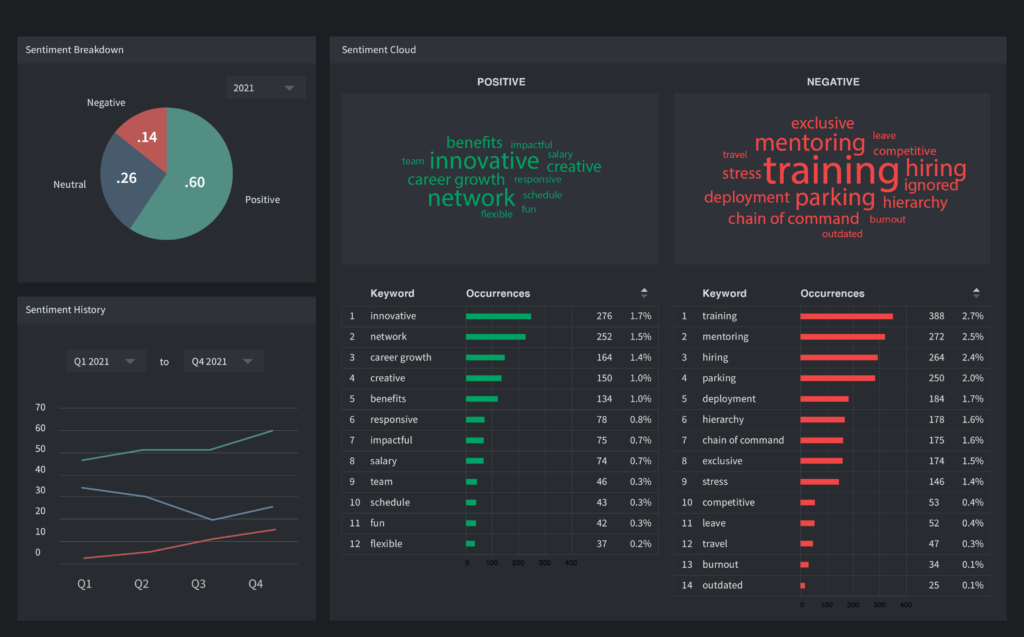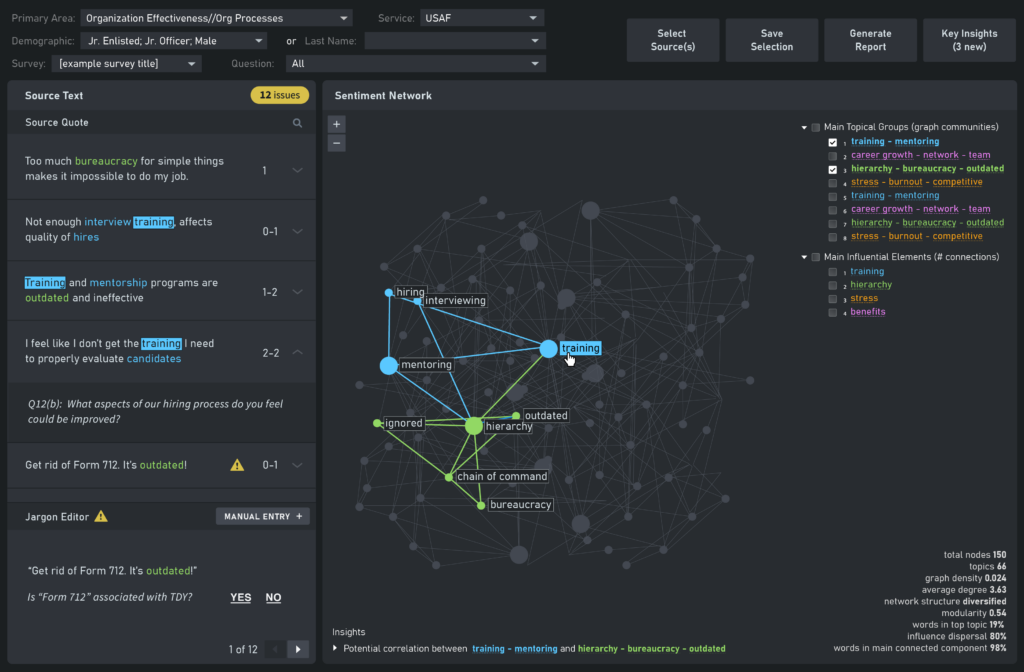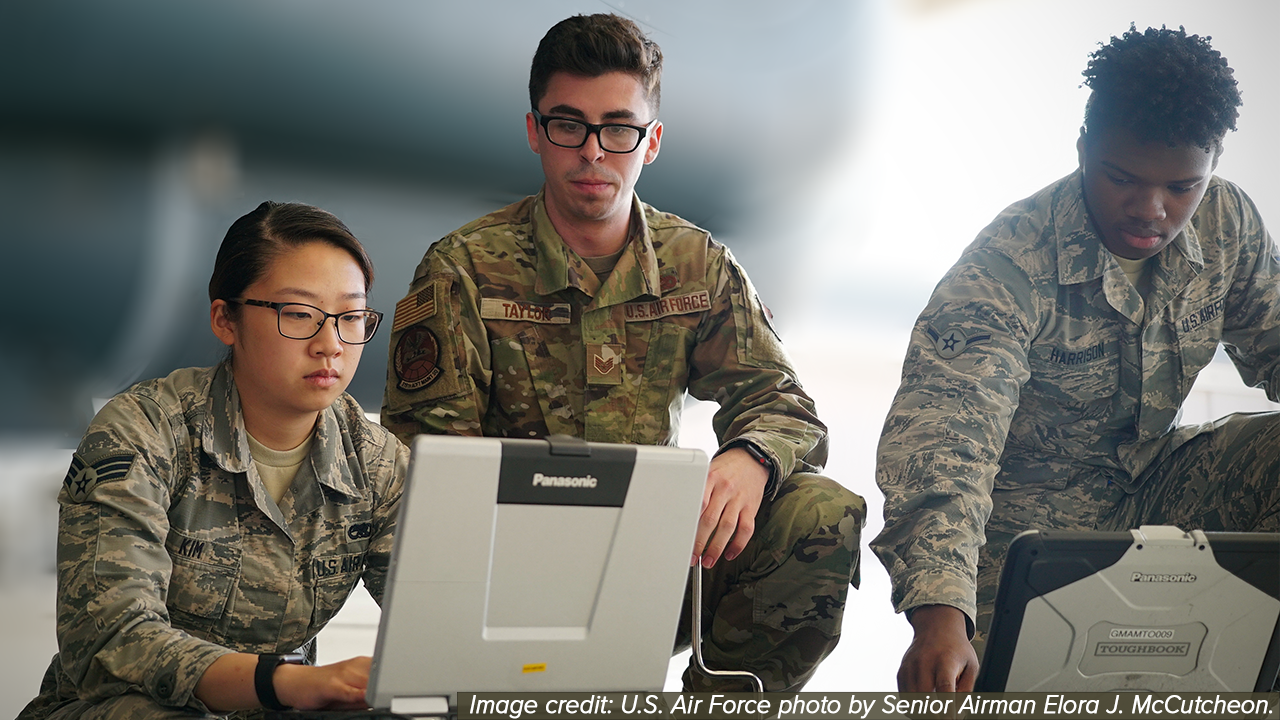Charles River Analytics is helping the Department of Defense (DoD) improve organizational effectiveness and promote equal opportunity, by using a technique called sentiment analysis.
Sentiment analysis uses natural language processing (NLP) and other data analysis techniques to derive insights from free-form text. The DoD gathers extensive free-form text data, from sources such as focus group reports and survey responses. However, off-the-shelf NLP tools do not perform well on the defense jargon found in this data.
That’s where Charles River comes in, with JALAD (Jargon Association for Language Analysis in Domains). By applying leading-edge research in NLP and best practices in human-machine interface design, Charles River scientists and engineers are creating a tool that the Defense Equal Opportunity Management Institute (DEOMI) and the Defense Human Resources Activity can use to draw insights about personnel. JALAD includes three key elements: a tool for jargon discovery, a model for understanding the text data, and an intuitive user interface.

“JALAD is exciting because we’re allowing the large amount of feedback from across the DoD to be heard and understood by the DEOMI, so that they can promote increased diversity, inclusion, and equal opportunity,” said Ceara Chewning, Scientist at Charles River Analytics and Principal Investigator on the JALAD effort. Ms. Chewning is a computational linguist with expertise in NLP and computational semantics.
JALAD’s Jargon Discovery and Semantic Association uses statistical techniques and machine learning algorithms. It discovers defense domain terms in the text data and then match the terms to those in an official DoD dictionary. This process creates the automatically evolving JALAD dictionary. The JALAD model, using neural networks trained with the JALAD dictionary, performs aspect-based sentiment analysis. Aspect-based sentiment analysis breaks text data into fragments and assigns attitudes and feelings to specific features and topics. The results of this analysis are delivered through an intuitive interface tailored for specific user roles, including Commanders and analysts.

JALAD technology will enable analysts to quickly and easily understand trends in personnel opinions and perceptions. By helping the DoD maximize organizational cohesion, JALAD will support mission readiness. The technology developed for JALAD is also critical to numerous applications in the commercial sector. Sentiment analysis is a major component of the established market for customer relationship management and the emerging market for employee sentiment and engagement. JALAD has the potential to provide data analysts in a variety of fields with a customizable NLP tool.
Contact us to learn more about JALAD and our other capabilities in natural language processing and human-machine interface design.
This material is based upon work supported by the Naval Air Warfare Center under Contract No. N68335-21-C-0512. Any opinions, findings and conclusions or recommendations expressed in this material are those of the author(s) and do not necessarily reflect the views of NAVAIR.

